Signs that your business might need an ERP system and how your business could benefit from it?
The majority of small businesses start with just the basics. This may include a combination of simple accounting software and document-based processes—i.e., spreadsheets, synced documents.
As the business expands and transactions increase, it may become more time-consuming and difficult to process a larger volume of data. Business processes become much more tedious, such as; inputting sales and purchase orders from various clients, updating inventory, manual stock checks, processing invoices, billing and keeping track of client interactions.
This is especially true if this information is stored in separate systems and databases. This means that data may need to be imported/exported from the program to program in the workflow, allowing room for errors.
ERP system can automate these manual processes, allocating more company time to sales and business development instead of administrative tasks. Furthermore, ERP software allows synchronous workflow from inquiry to invoice and payment. The ideal ERP system would handle the processes in one fluid system:
Contact with Client (CRM) → Order Processing (Supply and Inventory Management) → Invoicing and Payment (Finances and Accounting)
It may be time for ERP implementation:
• When the amount of inventory in the warehouse becomes difficult to determine;
• When the sales forecast is based mostly on guesswork;
• When the company is struggling to keep up with an upsurge of orders or relies heavily on Excel spreadsheets;
• When getting solid business facts becomes problematic, it may be time for ERP implementation.
What benefits do small businesses achieve from ERP?
Transparency: Instead of each department having its own information system, all relevant data can be shared and accessed by all the departments. This eliminates the need to re-enter or export data, which can result in fewer errors, increased productivity and reduced expenses on human resource.
Decision-making: Real-time data provided by the system can be beneficial for marketing, management, accounting, and enables the organization to make vital decisions on time and reduce waste. Teams can detect any potential obstacles or issues that may shake productivity levels. An overall picture of operations allows business leaders to make effective decisions and respond quickly to a changing business environment.
Productivity: With increased clarity by streamlined business processes, staff can shift their focus on managing increased volumes of business. This aids in transforming various facets of your business and overcoming the challenges involved in business growth.
Which ERP should you choose ?
There is no one size fits all ERP system. Each business has different competitive profiles, customer mixes and business standards that make for a massive range of solutions.
A good ERP option will offer a suite of business management tools such as CRM, web hosting, e-commerce platform, a tasking system, a shipping manager, email marketing, etc. However, too many unnecessary bells and whistles may cut back revenue.
As a small business, you want to invest in the most cost-effective solution that meets your needs fits your industry and is manageable. There are various factors to consider when choosing which ERP is best for you and your company.
Choosing an ERP for your business can be overwhelming. If you are unsure about where to start, a detailed business health check could provide insights for your journey to make an informed decision about your business future with ERP.

